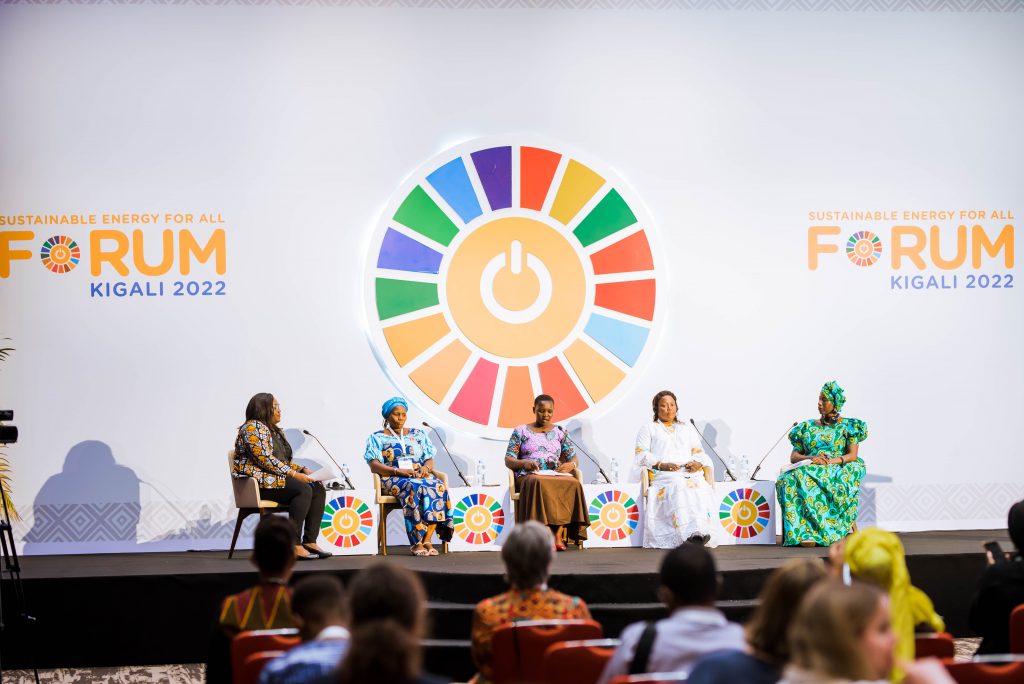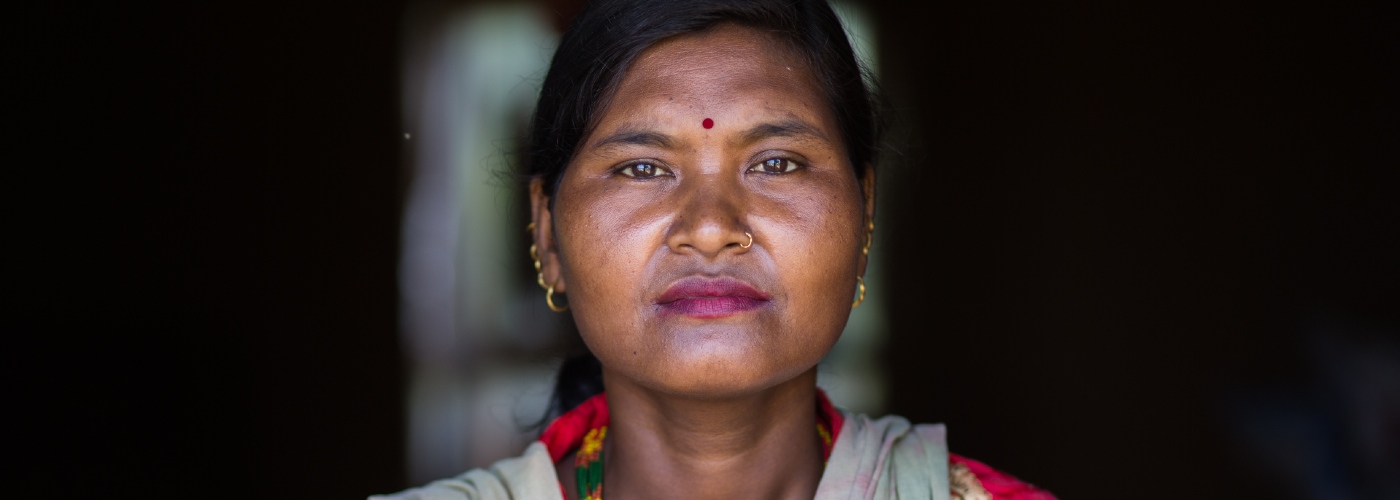by Sheila Oparaocha, Director at ENERGIA
The multiple and severe crises we are facing present us with serious issues that require immediate action. Yet our current political and economic system fails to ensure an equal and sustainable future that benefits all. We need a just energy transition that not only puts people and the environment first, but also promotes inclusive and gender-transformative action. This is absolutely critical to address current and future challenges on a planet with limited resources and gaping inequities.
We need systemic change that is not just hypothetical and does not only address existing inequalities to accommodate the will of elites. We need a change that gives space, voice and opportunity to those being left behind, including women, who have the knowledge, the experience and the ambition to lead the way.
Action is needed now. Over 730 million people lack access to electricity, and 2.4 billion use polluting cooking fuels and technologies, all of which mostly impacts the safety and health of women and children. The world’s unequal use of environmental and economic resources is seriously compromising the future of minorities, including women, who bear the brunt of the climate crisis. It is clear that cleaner alternatives and businesses are needed. But most importantly, we need actions that promote a just, inclusive and equitable energy transition that empowers all people – especially marginalized and underrepresented communities – economically, socially and environmentally.
This transition must fully include women and use their agency, leadership, entrepreneurial skills and participation to accelerate the achievement of universal sustainable energy and reduce the gender gap. Gender-smart initiatives and investment in last-mile areas have widely demonstrated that they are much better at providing sustainable energy solutions at local levels. And women are also increasingly active in the energy workforce and as entrepreneurs, contributing to the economic growth and industrial development of their communities
But women are not just agents of change. They also play a key role in tackling crises, when they have the opportunity. Women and underrepresented groups must have the right and the opportunity to participate in decision-making processes at all levels, including international forums and climate negotiations, from which they are often excluded. And even when present, their voices often go unheard. That’s why we need gender-transformative policies that address this systemic exclusion from representation, from the labor market, from finance, from education.
With the COP27 around the corner, ENERGIA calls for greater representation of women in the climate and energy dialogue. Because women are uniquely positioned to lead, participate in and benefit from a just and inclusive energy transition.
Women as agents of change for a climate-resilient and just energy transition
ENERGIA recognizes women as agents of change who can play a unique role in raising awareness on the adoption of clean energy solutions, empowering their communities, and advancing gender equality.
- We have supported and trained more than 8,000 women entrepreneurs in the clean energy sector.
- Relying on the productive use of energy, we have provided almost four million people in last-mile communities in Africa and Asia with access to affordable energy.
- By selling, servicing and financing energy products services, women entrepreneurs have engendered positive changes in the lives of their families and communities.
One example is Caroline Akinyi, who is now training other women entrepreneurs in briquette production in Kenya to promote cleaner energy solutions and change her community’s habits. Others are Adebola Eunice Oladejo, Millicent Odira and Rose Sagna, who shared their stories of empowerment on stage at the SEforALL Forum in Kigali, becoming models of ambition, perseverance and resilience.
More excellent examples of how change can start with people and how projects can change norms come from the Gender and Energy Innovation Facility. It was launched in July 2020 by ENERGIA, EnDev, Modern Energy Cooking Services (MECS), Hivos, and the Swedish International Development Cooperation Agency (Sida). By its end in September 2022, it had 43 applications and supported 28 boot camp innovations, 10 first-phase projects and six scale-up projects. Among these projects, Nukta, a media agency in Tanzania, created a news portal that promotes clean cooking and female entrepreneurs in the sector. It also manages a YouTube channel showcasing clean energy and men’s cooking skills, and created an application to help people buy clean energy products from women entrepreneurs. In Nepal, the Women Network for Energy and Environment (WoNEE) trained two cohorts of women who run or work in electrical appliance shops how to maintain and repair e-cooking stoves. A few months into the program, these women have now become advocates of clean cooking, sellers of e-stoves and technicians able to repair their stoves.
These local women’s voices need to be heard, supported and included when discussing climate solutions. For the process to be inclusive and fair, the debate must also be inclusive and fair.

Ensure access to financing mechanisms for all
Despite the wide recognition that supporting gender equality contributes to sustainable energy for all and vice versa, gender-smart climate finance for a just and inclusive energy transition lags behind. Financial mechanisms tend to be gender-blind at worst, or at best see women as a single block without acknowledging their different needs and constraints. They thus fail to include the needs and rights of the majority of poor and excluded women living on the frontlines of climate change and energy poverty. To the extent that the International Finance Corporation (IFC) estimates that the financing gap for women-led MSMEs in developing countries is approximately $1.7 trillion. (See also “Energizing Finance: Understanding the Landscape 2020” by Sustainable Energy for All and Climate Policy Initiative).
In this context, data is crucial to improving policies and procedures to create the framework for a more gender-balanced sector that recognizes not only the need to be equal, but also the benefit that a fair and equitable transition would be to our socio-economic-political development.
We need to scale up actions
To be on track with the Sustainable Development Goals and the Paris Agreement, broader cooperation is needed with different actors who decide to put rights and justice on their agenda. The energy transition needs transformative partnerships that harness multi-stakeholder collective action to accelerate a sustainable, inclusive, and equitable energy future. The latest SDG7 Policy Brief in 2022, “Addressing Energy’s Interlinkages with Other SDGs,” showed this clearly. Although energy action is needed more than ever in this situation, we are losing pace. As a member of the SDG7 Technical Advisory Group, ENERGIA calls for the following efforts to stay on track to achieving the SDGs and the Paris objectives.
- Provide equal opportunities to reduce drudgery and improve women’s welfare in communities, but also to ensure that women are represented in the climate-energy debate and participate in the energy transition. We need enabling policy frameworks and inclusive work environments for women to support equal opportunity recognition.
- Strengthen investments. Inequalities demand bold responses that can only be successful if accompanied by adequate financial resources. We need to mobilize financial resources, including from governments, multilateral financing institutions, and the private sector. We need to invest in women’s education and knowledge development through scholarships, mentoring programs, support for networking, as well as support women-led businesses or careers. These investments need to take into account women’s needs.
- Collect data and identify indicators. We know that the interlinkages between SDG7 with other SDGs need to be quantified and monitored in order to encourage evidence-based decision-making. This requires identifying potential indicators which can capture progress. To do this, the dearth of data and lack of consistency in data must be addressed.
- Support partnership and collaboration. We need to encourage, build and coordinate gender and energy initiatives at all levels to ensure women and marginalized communities are at the center of universal, equal and equitable access to and control over sustainable energy for all. Last but not least, we need men and the recognition of their privilege to close gender gaps.
Where’s the money?
ENERGIA is co-hosting the side event “Where is the money for a gender-just energy transition?” on November 14, 2022 (10:30 – 11:30 UTC+2) at the SDG7 Pavilion in the blue zone of the Sharm El-Sheikh International Convention Center (COP27). Panelists will explore the current financing landscape for gender-equality for a just and inclusive energy transition and how adequate financial resources can materialize to reach women and meet their practical as well as strategic needs.
Co-organizers: Gender and Energy Compact (UNIDO, GWNET, ENERGIA) and SEforAll







